Intermittent Fasting and Collagen Production
- By Yonboon Team
- February-7-2024
According to recent studies, intermittent fasting can help stimulate collagen production in the body. This detailed blog explains the connection between fasting and collagen production.
First Things First, What Is Intermittent Fasting?
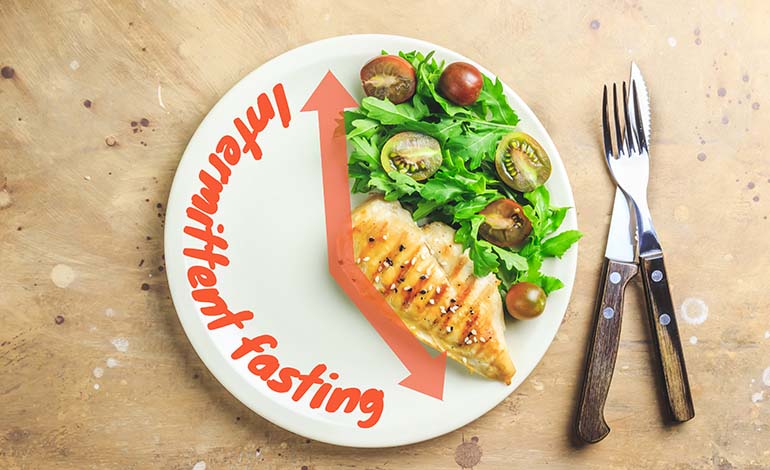
Intermittent fasting is a type of diet that is built around consistent cycles of eating and fasting.
Let’s explain it in simple words…
You can consume as much water and other calorie-free beverages as you desire while fasting. Plus, there are no restrictions on the types or qualities of food you can eat during the feeding period.
There are two popular approaches:
- The 16/8 strategy, which involves fasting for 16 hours and eating within an 8-hour window.
- The 5:2 approach, which alternates between normal eating for 5 days and drastically reducing calories for 2.
What’s The Role of Collagen in Your Body?
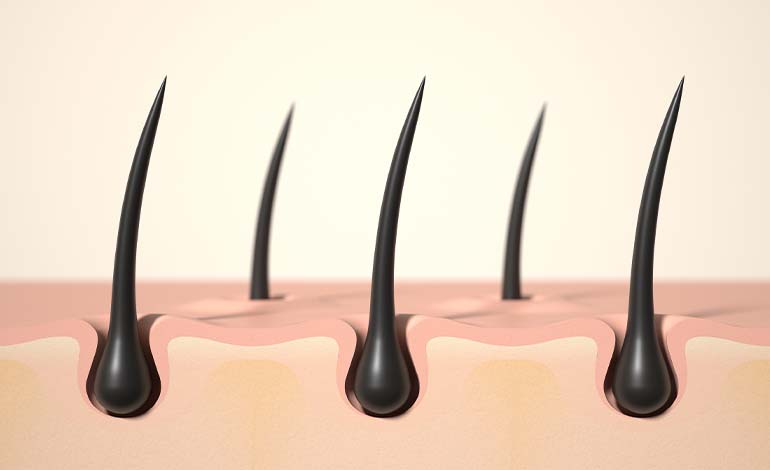
Comprising complex molecules with an interesting diversity, collagen protein has several uses in the medical world. From enhancing skin elasticity to supporting joint health. The potency of marine collagen has been established by the abundance of collagen found in fish, as evidenced by multiple research and success stories.
Collagen’s main function in the body is to give it support, strength and structure. Its specialized functions include:
- Assisting in the dermal fibroblast development (in simple words, production of new skin cells).
- Replacing dead skin cells
- Providing support to the several essential organs within the body.
- Clotting of the blood.
Intermittent Fasting and Collagen Production
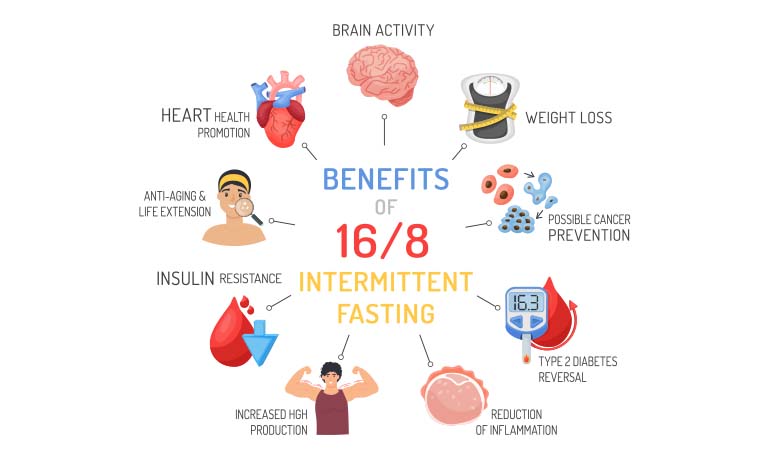
Although intermittent fasting can aid in weight loss, it is well-liked for its many other health-related benefits. These include increased metabolism, enhanced cognitive function, and possibly even a longer life span.
Also, it is evident that intermittent fasting can help improve the condition of aging skin in a number of ways.
The benefits of intermittent fasting for skin health are immense. It may be a fantastic tool in your supply for healthy living and skincare when done correctly.
What’s most surprising is that it provides a comprehensive and highly customized method to improve your skin.
It can improve your general health and well-being in addition to giving you a clearer, younger-looking, and radiant complexion.
Still, not everyone is a good fit for intermittent fasting. Before beginning a new diet, it's a good idea to speak with a doctor or nutritionist, particularly if you have any dietary requirements or current health conditions.
So, the question is…
Does Fasting Increase Collagen?
When you are in the phase of intermittent fasting, an important hormone, Human Growth Hormone (HGH), is secreted more and in a better way. The collagen production in your body is greatly regulated with HGH.How?
- It aids in the fibroblast differentiation into myofibroblasts, which are collagen producing cells.
- HGH increases the expression of the collagen gene.
However, a few studies have suggested a decrease in collagen synthesis during prolonged fasting.
Why Take Collage While Fasting?
Certain newbies that observe fasting have highlighted the benefits of taking collagen supplements along with vitamin C. There is an important connection between collagen and vitamin C as combining both enables increased absorption and efficacy.Consuming collagen can offer your body health benefits and amp up the impact of intermittent fasting concept as a whole, even if it is not required. Where fasting helps in the restoration and purification of your body, collagen will support a healthy way of living.
Read also: How Long Does It Take for Collagen to Start Working
The Health Benefits of Combining Collagen with Ramadan Fasting
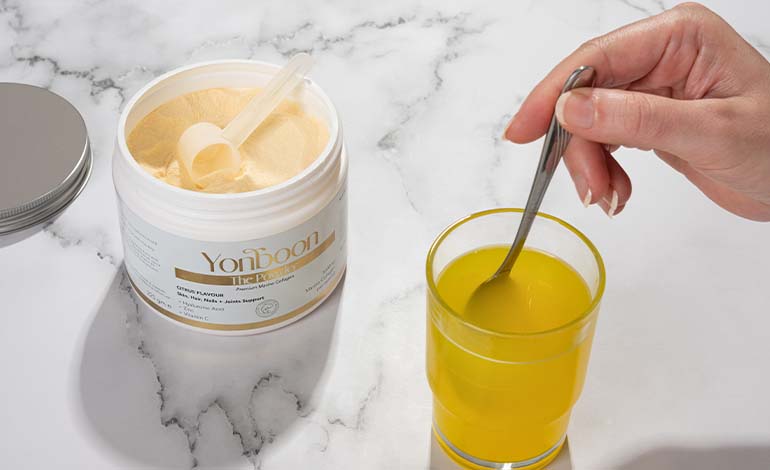
When you take collagen in suhoor, you can feel satisfied and energized for the whole day. You can reach ketosis the fast as collagen is keto, and best of all, you won’t feel bloated!
And there’s more.
At Iftar, you can take collagen with water. It dissolves completely and has no taste, such as our unflavored marine collagen supplements. It gives you more energy, makes you feel full, and prevents overeating.
After all, incorporating a scoop of our marine collagen into your daily diet helps achieve a host of health and aesthetic objectives, such as
- Strong bones, tendons and cartilage
- Gut health
- Glossy and thick hair
- Strong nails
- Improved flexibility
- Youthful, smooth skin
Best Practice for Collagen Intake During Fasting
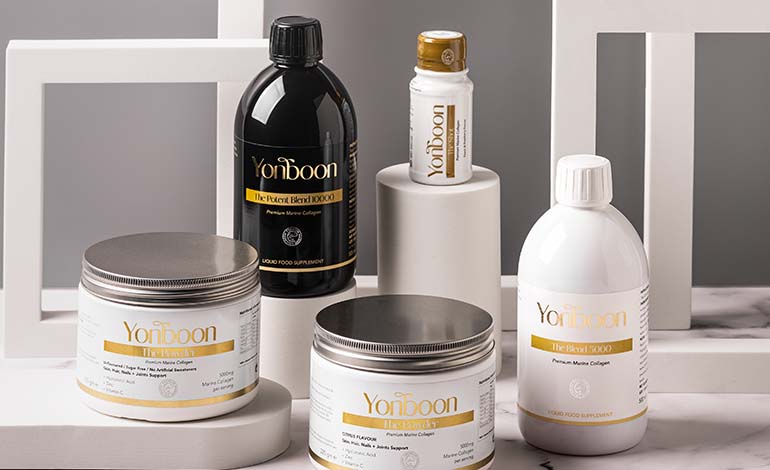
When you take a scoop of collagen powder—especially an unflavored, unsweetened kind like marine collagen—into your coffee or tea while fasting, it won't take away from the advantages of fasting.
Additionally, consuming collagen during a fast can help you avoid overeating, which is another crucial aspect of the practice. You can eat the meals you want at a certain time of day when you practice intermittent fasting.
However, it's crucial that you monitor your food intake and avoid overeating in bulk. It's only then that you can be sure you're reaping the rewards and doing everything correctly.
How Much Collagen Is Suitable To Consume During A Fast?
When you are supposed to be eating, take collagen supplements. It’s as simple as that!This ensures that the complete benefits of collagen will be obtained without interfering with your fast. Mix 1 to 2 scoops of collagen supplement with water or other low-calorie, low-sugar beverages in suhoor and iftar. Also, it is ideal to consume 5g to 10g of collagen before and after your fast.
Related: How Much Collagen Should I Take Daily?
FAQs
Can you drink collagen in intermittent fasting?
Absolutely yes. You can take collagen in the morning before you start your fast and again when you break it. It is an ideal way to incorporate Yonboon marine collagen supplements in your fasting practice, be it intermittent or Ramadan fasting. As mentioned earlier, before starting your fast, taking collagen in the morning can help you feel satisfied and full all day.Does fasting break down collagen?
There is no certain answer for this; however, in some research studies, it was indicated that a single, 72-hour fast with water only led to a reduction in the production of cutaneous collagen.Does fasting help with collagen production?
Yes. Fasting does help with collagen production. Your skin regenerates as a result, producing fresher and healthier cells. Periodic fasting can boost HGH production, in turn, enabling more production of collagen protein in the body. This promotes skin firmness and tightness by increasing elasticity. This is how wrinkles and fine lines—signs of aging skin—are also lessened by intermittent fasting.Does collagen break your fast?
The question of whether collagen breaks fast or not is a highly debated one. Collagen technically breaks fast because it is considered a food item as it has calories. Even unflavored collagen powder that hasn't had any sweeteners or additions adds calories and throws off the fasting state.Can collagen help with skin elasticity and hydration during prolonged fasting?
Yes. Collagen helps with skin elasticity and hydration during prolonged fasting. Numerous research studies indicate that intermittent fasting may enhance the production of collagen, which is the primary function of fibroblast cells. Higher collagen levels promote skin elasticity and lessen the visibility of wrinkles and fine lines.Key Takeaway

Honestly speaking, how fasting affects collagen production is still not completely known. Collagen provides multiple health and beauty advantages in addition to providing you with much-needed energy and keeping you satisfied throughout a fast.
You can easily mix collagen supplements with your coffee or smoothie without overpowering the flavors, as many of them are flavorless. Although you can mix it with liquids, it is best to divide your protein consumption appropriately.
You can also add it to your meals. If you exercise throughout your fast, you might want to think about taking a collagen supplement afterwards.
Here’s what you need to keep in mind:
- While certain sweeteners in flavored collagen might break a fast, others might not.
- Wearing a glucose monitor can give you additional assurance regarding collagen's effect on fasting.
- It's unclear exactly how collagen affects autophagy when fasting.
- Since collagen contains calories and is regarded as food, it technically breaks a fast.
Yonboon supplements, which are Type I Collagen, significantly enhance the appearance of skin by encouraging hydration, improving elasticity, and reducing wrinkles. In addition, it promotes bone and joint health and aids in the recovery of muscles.





